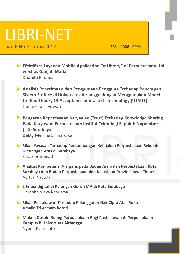Jurnal Analisis Hubungan Internasional
ISSN 2302-8777
Vol. 6 / No. 1 / Published : 2017-01
Order : 2, and page :16 - 32
Related with : Scholar Yahoo! Bing
Original Article :
Strategi keamanan energi tiongkok di kanada tahun 2009-2013
Author :
- Alvin Adi Mahardika*1
- Mahasiswa Fakultas Ilmu Sosial dan Ilmu Politik
Abstract :
After economic liberalization in Deng Xiaoping’s regime on 1978, China rise as new economic power with rapidly increasing energy consumption. China’s imports of oil products in 1993 and imports of crude oil in 1996, marking the end of China's energy security. Even in 2010, International Energy Agency (IEA) named China as the country with the second largest energy consumer after the United States of America. It is to raise awareness internationally about the prospects and the impact of China's energy consumption to the stability of oil prices and competition in the future global oil market. Nevertheless, there are still few studies examining China's policy related to energy supply security, which specifically discuss the oil. By using the analytical framework of energy security, there are three things to note China in seeking new oil-producing region such as resources, supply chain, and price. One country that has the potential to be a key player is a Canada’s oil resources. Canada emerged as an alternative to overcome the perceived threat of China’s energy security. Problems in this paper was formulated to assess China's policy related to the security of energy supply in Canada through state-owned enterprises of China.
Keyword :
China’s policy, energy security, oil, canada,
References :
Budiarjo, Miriam,(1985) Dasar-dasar Ilmu Politik - : -
Daft, R.L.,(2004) Organization Theory and Design, 8th edition - : Thomson
Downs, Ericay,(2006) Energy Security Series - : Brookings Institutions
Archive Article
| Cover Media | Content |
|---|---|
 Volume : 6 / No. : 1 / Pub. : 2017-01 |
|













